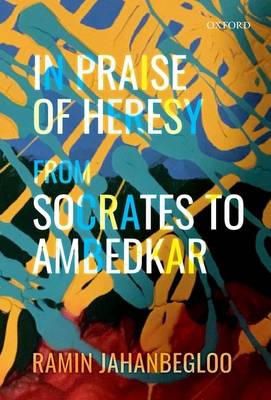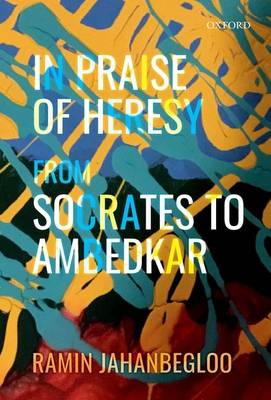
- Afhalen na 1 uur in een winkel met voorraad
- Gratis thuislevering in België vanaf € 30
- Ruim aanbod met 7 miljoen producten
- Afhalen na 1 uur in een winkel met voorraad
- Gratis thuislevering in België vanaf € 30
- Ruim aanbod met 7 miljoen producten
Zoeken
€ 72,95
+ 145 punten
Omschrijving
In today's global climate of pre-packaged opinions, every effort of original thinking is an act of dissent. To think radically today is to be a heretic: committing 'heresy' not in its theological sense, but in relation to its ancient Greek roots, which means 'choice'. With the rise of the post-industrial global village dominated by media networks and technology-led communication, the 'epidemic of conformism' has completely paralysed intellectuals' ability to question. It has now become critical to examine the central role of heresy in the formation of critical thinking and anti-dogmatism.
Since the time of Socrates to the present, public intellectuals have aligned themselves with the heretical imperative by questioning organized power and opened up social, political, economic, and cultural life to public scrutiny and accountability. This effort is described in this volume through the self-examined lives of philosophers such as Socrates and José Ortega y Gasset, Albert Camus, and Yukio Mishima. They serve to elaborate the context of the author's bold claim that B.R. Ambedkar, the central character of the author's research, is the boldest heretic in Indian political history.
Since the time of Socrates to the present, public intellectuals have aligned themselves with the heretical imperative by questioning organized power and opened up social, political, economic, and cultural life to public scrutiny and accountability. This effort is described in this volume through the self-examined lives of philosophers such as Socrates and José Ortega y Gasset, Albert Camus, and Yukio Mishima. They serve to elaborate the context of the author's bold claim that B.R. Ambedkar, the central character of the author's research, is the boldest heretic in Indian political history.
Specificaties
Betrokkenen
- Auteur(s):
- Uitgeverij:
Inhoud
- Aantal bladzijden:
- 136
- Taal:
- Engels
Eigenschappen
- Productcode (EAN):
- 9780190130541
- Verschijningsdatum:
- 4/05/2021
- Uitvoering:
- Hardcover
- Formaat:
- Genaaid
- Afmetingen:
- 147 mm x 226 mm
- Gewicht:
- 317 g

Alleen bij Standaard Boekhandel
+ 145 punten op je klantenkaart van Standaard Boekhandel
Beoordelingen
We publiceren alleen reviews die voldoen aan de voorwaarden voor reviews. Bekijk onze voorwaarden voor reviews.











